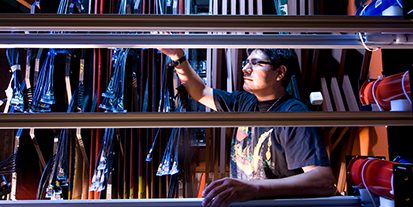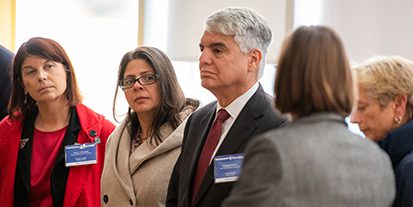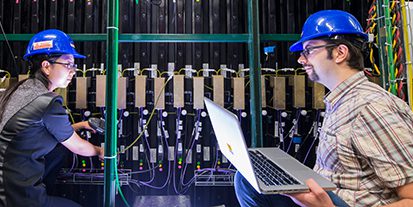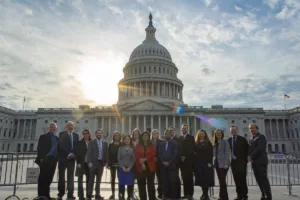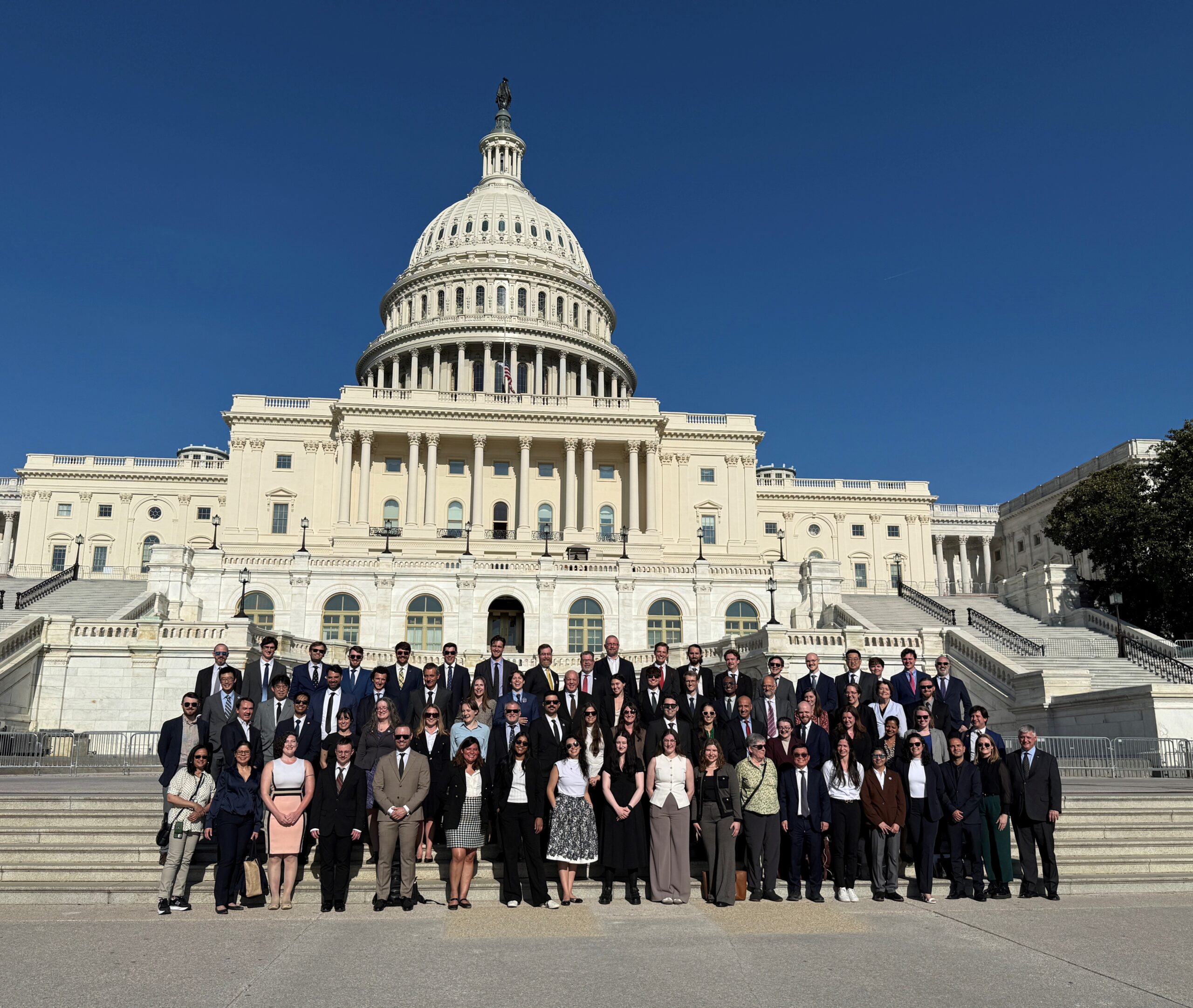WASHINGTON, D.C. (April 28, 2025) – More than 80 members of the national U.S. High-Energy Physics (HEP) community gathered in Washington, D.C. on April 22-25, 2025, meeting in-person with members of Congress, congressional staff, and representatives from the Executive Branch. The event continues a key tradition of direct engagement between scientists and policymakers.
The delegation brought together a wide cross-section of the national HEP community, including university professors, postdocs, graduate and undergraduate students, principal investigators, and researchers from national laboratories. Event organizers and participants represented HEP user groups from the Users & Affiliates Executive Committee (UAEC) at Fermilab, SLAC Users Organization, the U.S. Large Hadron Collider Users Association (USLUA), as well as scientists from Argonne and Lawrence Berkeley National Laboratories.
Throughout the four days, discussions focused on the essential role of federal investment in sustaining the momentum of U.S. high-energy physics programs. Delegates shared updates on ongoing research, highlighted current and future projects aligned with the 2023 Particle Physics Project Prioritization Panel (P5) report, and reinforced the message of gratitude for continued support from Congress. One of these projects, the Future Muon Collider, represents a significant opportunity for the U.S. to lead in next-generation particle physics research. If realized, it could provide unprecedented insights into fundamental physics, including the Higgs Boson and potential new particles beyond the Standard Model. Spearheaded by the U.S. Muon Collider Collaboration (USMCC), this initiative seeks to design and potentially construct a high-energy muon collider, with Fermilab considered as a prospective host site.
This annual visit is a reminder of how essential strong partnerships between science and government are for maintaining America’s leadership in cutting-edge research. By keeping these lines of communication open, the global HEP community helps secure continued support for discoveries and innovation in high-energy physics.

